Exclusive Interview: Meg Whitman On HP's Split, Software-Defined Data Centers And Forthcoming Technology Advances
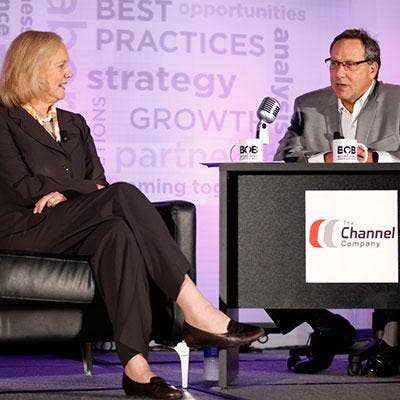
Whitman Takes Center Stage
It's been a busy few weeks for Hewlett-Packard, to say the least, but that didn't stop CEO Meg Whitman from taking the stage in the closeout general session at the Best of Breed Conference in Orlando, Fla. In front of an audience of top-tier solution providers, Whitman fielded tough questions about the company split, the end of EMC acquisition rumors and what it all means for partners from The Channel Company CEO Robert Faletra and solution providers themselves. Here's what she had to say.
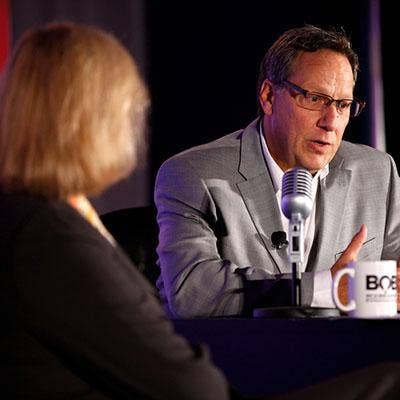
I'm having a trouble keeping up with you. CRN just put up a story that you've actually started the buyback of shares and one of the reports is that the EMC deal is off. Can you talk a little bit about that?
No [laughter from the audience]. What I can tell you is, listen, this industry is changing as fast as I've ever seen anything change in my 35-year career. The ability to move, be agile, to adapt -- and I'm sure you're going to ask about the separation -- but you have to be able to position your company, whether you're HP or any of the companies that you all run or own out there. I think change is more constant than it has ever been and you just have to think about things that you might not have thought about before.
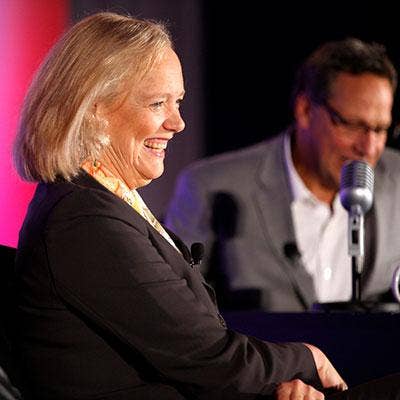
Let's talk about the split. What's the general feedback you got there? Did you hear some concerns?
When you do something of this magnitude, the planning around this is much like a military operation. … We had to get the messaging clear and simple so that every single HP employee, all 275,000 of us, could deliver the message. So, we went out at 3:30 a.m. Pacific Time on Monday morning a week ago and just jumped right on the phone. Within the first 48 hours we had called 1,600 partners across the globe. ... I actually made about 50 to 60 phone calls myself that day. I think their reaction was really quite positive overall. ... To the extent that we can accelerate the innovation engine forward, be more responsive to more needs, be able to move fast, make decisions about the right kinds of offerings for our business ... that's what our customers want. From a strategic and operational perspective, I think this is going to make us even better.
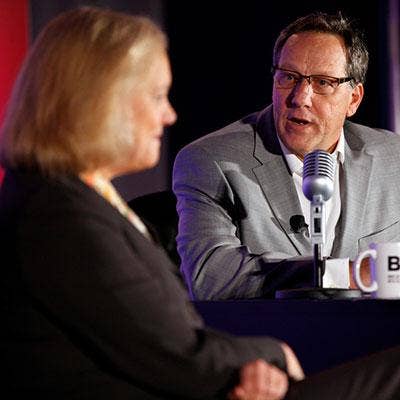
HP Inc. won't own any part of HP Enterprise, and HP Enterprise won't own any of HP Inc. They are truly two separate businesses. How do you hold that together?
I think a couple of things. First of all, it's continuity of leadership. I will be the CEO of Hewlett-Packard Enterprise, which is the server, storage and converged infrastructure side of the house, as well as software and enterprise services. Dion Weisler, who heads our Printing and Personal Systems business for the last couple of years, will be the head of HP Inc., and I will be the chairman of the board of HP Inc. ... There will be a lot of continuity there and we thought that was very important. The second thing is, where these companies collaborate where it will really make a difference, we will continue to do that. There will be resources and supply chain agreements, so we make sure to continue to leverage that we have with component supplier cost.
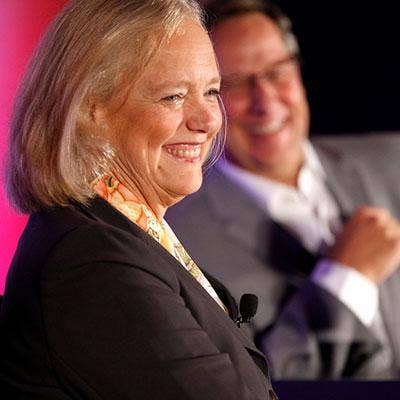
So you think you'll still be able to get scale?
Yes. I would say, too, sometimes in this industry you see how much scale works against you. When you think about with some of our vendors, we are their single largest customer. Sometimes we think that because we're such a large portion of their revenues, it's hard for them sometimes to give us the price breaks because it means they take a 20 percent of their revenue down. So, sometimes there may be an advantage to going to these vendors not as their single largest customer, but customer No. 3 or No. 4 for a whole lot more flexibility.
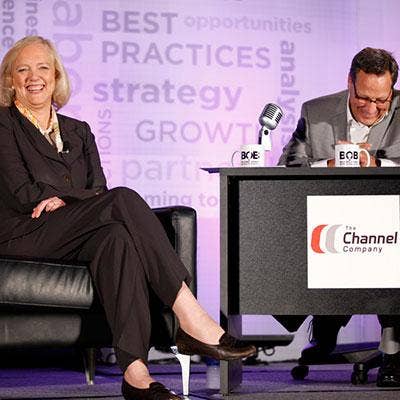
How are you going to split the board up between the two companies?
I have to say it's one of the things that collectively we are most proud of, is the board is a fabulous big company board. ... We have a lot of technology expertise on the board right now. What we will do is we will take the board and decide which ones will like to go to Hewlett-Packard Enterprise and who would like to go to HP Inc. We only have 12 board members, minus me 11, so we will split almost probably half in half and then we will obviously need new board members for both companies. To me, that's a huge opportunity. Again, to get more expertise, new global expertise and expertise that is uniquely suited to each of these businesses.
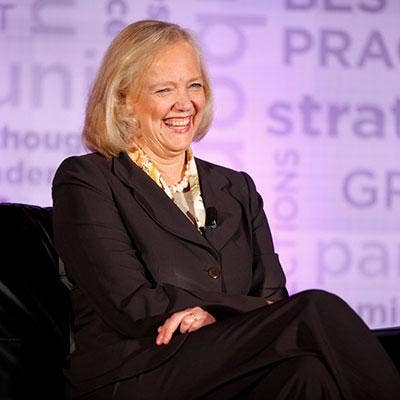
You said nothing changes for a year. You didn't come up with this idea 30 days ago. When did you actually get into this? How much of the work is already done?
Listen, I'm sure it's true for your businesses. You're constantly thinking about how you position yourself best to win in the marketplace -- how do you build a cost structure that allows you to be successful, how do you move things faster. As I have been at HP, you can see how many changes that we have made. Think about all the things that we have done in terms of re-igniting our innovation engine, reconnecting with the channel, improving our revenue mix, getting our cost structure in line. ... Monday would not have been possible without the last three years. We thought about it on and off, but I was very focused on making sure that you could say that the turnaround had taken hold and was very much under way. ... I expect you all won't see very much change at all in how we do business with you, even after the separation. I doubt you will see much disruption because a lot of it goes on behind the scenes. ... I think it will be relatively seamless to the customers.
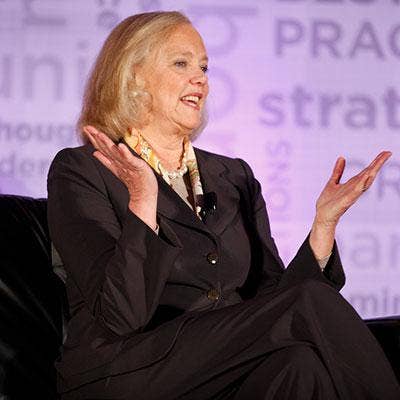
So, a few years from now, what if you decide as HP Inc. you want to move upstream, maybe into an area that HP Enterprise is in?
The obvious question is servers. In the near term, there will be an agreement about what are the swim lanes for each company, but probably after three years there won't be. We want these companies to be vibrant, we want them to be innovative. It's certainly possible [that HP Inc. will move upstream], but I don't think it's likely given the opportunities that [CEO Dion Weisler] sees ahead of him in printing and the personal device marketplace. And things like 3-D printing, like the next generation of computing experience, I think he thinks are probably better places to invest than just to duplicate what Hewlett-Packard Enterprise does. I think he's really focused on how do we continue the innovation engine in both of those existing businesses and what is the next frontier of innovation.
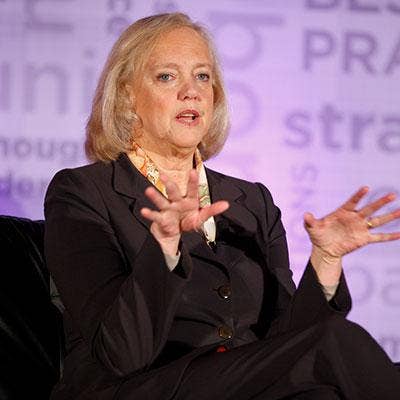
There's got to be some expectation that these things won't go as smoothly as you might like. There are going to be some hiccups. How are you going to handle that if it impacts the channel? Will that roll up to you?
Yes. That will probably roll up to me relatively quickly. We actually have a team of people in each of our major regions who just because of this announcement are on call, on deck 24 hours a day for any issues that might come up. We will keep that down the line. I think most of you know, I'm a reasonably hands-on CEO, and so it's easy to escalate an early problem by identifying and servicing a problem in 24 hours and resolving it in 48. We're going to keep that same mantra. If there's a hiccup or there is a challenge, which there inevitably will be, then the question is how fast can you fix it, how fast can you make it right. That's what we aim to do.
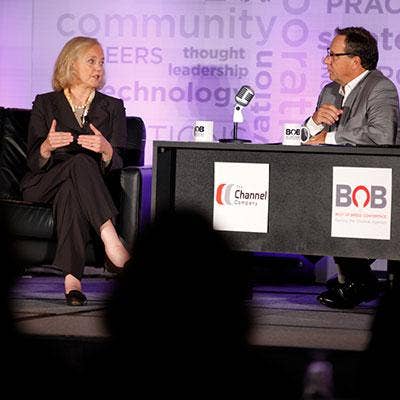
How are you going to do that sitting on the top of HP Enterprise and still be chairman of HP Inc.?
Listen, there is a very specific role of the chairman of HP Inc. I'm not going to be running that business. I'm going to be chairman of the board. I think the good news about me is that I've been in business for so many years, I have managed boards, whether they be at FTD, or Ebay or Hewlett-Packard. I know what the role of chairman of the board is. Dion [Weisler] will run that company. Obviously I will be coach, mentor, helping to manage the board, think through big strategic decisions with him and obviously be out in front of partners for both companies, but the fact of the matter is my day job will be running Hewlett-Packard Enterprise.
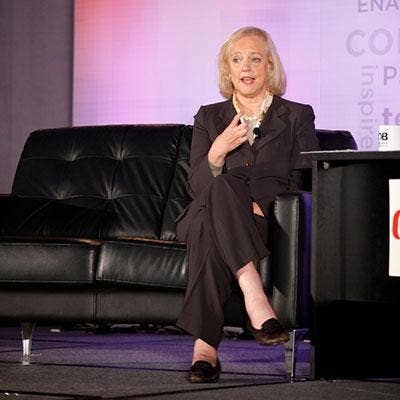
Clearly when something like this happens, there's a desire for competitors to inject some level of FUD or uncertainty in the market. You all did the same thing with the Lenovo-IBM deal. How do you suggest partners deal with that in the market?
What I would say to your customers is basically we think this is a great opportunity because it's going to change the scope and make us stronger, leaving us collectively stronger in terms of the product offerings, the solutions, the time to market and the speed and agility. I bet all of you, when you talk to your customers, you are seeing that same demand out there for ... how do I make that technology work for me in a way that takes advantage of all of the new tools out there. You've probably heard me talk about the 'new style of IT'. ... In fact what it really is is a new style of business that is being powered by IT. All of your customers, I'm sure, are asking you for advice and counsel and you should say, 'Listen, I think HP will retain the benefits of a very big company in terms of supply chain and other things, but we think it will be more nimble depending on what kind of solution you're looking for.'
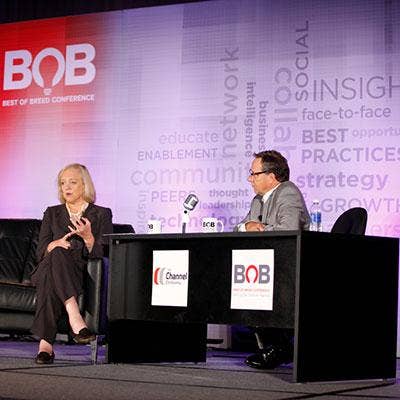
Let's talk about the partner base -- have you done any analysis of what percentage of partners will sit in HP Inc., HP Enterprise and the size of the group that straddles both?
About 20 percent of our Platinum, Gold and Silver partners have made investments in selling both lines of products. ... But even those 20 percent are often serviced and have made investments in different parts of the organization. We hope that many of you, and more of you, will sell the whole line of Hewlett-Packard broadly, if that makes sense for you, but I think you'll get even more responsive service in these separate areas. Again, I've got to come back to, in the beginning, the middle and the end this comes back to product, doesn't it? What is the product, what is the solution that you can offer to your customers? I don't actually think this will be terribly disruptive.
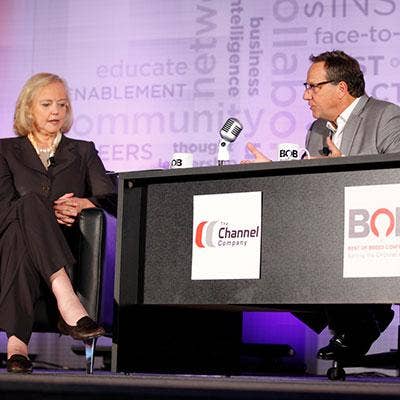
So that's real coordination between the two companies over the long term, then?
Yeah. Whenever I think about this -- so, HP was born in a one-car garage. Think about it -- I think we've just moved to a two-car garage. It's the same garage but a bit more focused with speed and agility.
Is there a door in between?
Whitman: No. There's not really a door in between. [laughs]
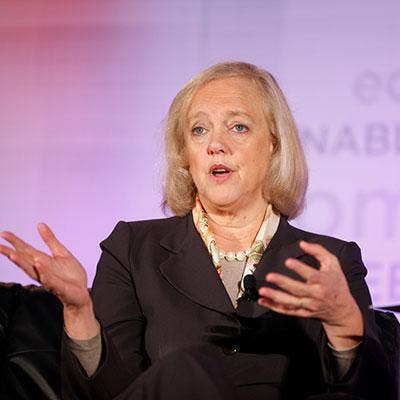
What was the underlying reason that you felt these two should be separated? To drive PartnerOne a little differently to do different things in the market in terms of pricing?
Let's start with the strategic: more focus, faster time to market, being able to connect even more tightly with what your needs are and what your customer needs are. I've never seen an industry move this fast. ... Think about what has happened in the last three years. It's breathtaking. … From an operational perspective, we've made a lot of improvements over the last three years. ... Those ought to be even tighter, even faster and uniquely married to the two product lines. … Then financially, these two companies will be set up from a financial perspective to more closely marry the opportunities in each market. For example, the enterprise business will have less debt on it than the PC and printing business because that market has faster growth rates embedded in it and we need to be able to make acquisitions, we need to be able to tuck in acquisitions and we need to be able to move faster.
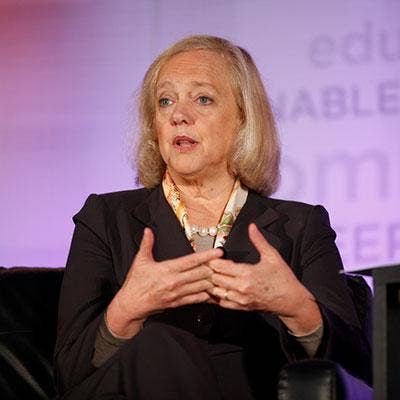
Will you be able to do an acquisition while you're trying to make this split? Is that going to complicate things?
You know, I think we ought to be able to. Listen, one of the things that we have built at HP over the last three years is much great management capacity and bandwidth. I hope most of you see that. In our business, you have to be able to walk and chew gum at the same time. You have to be able to keep two thoughts in your head. You have to be able to do a number of things. We're quite well set up to the extent that acquisitions make sense. ... Whether it's small, medium-size or medium to large acquisitions, we ought to be able to do both.
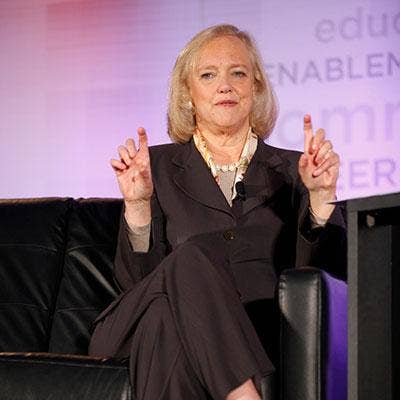
You also made an announcement yesterday in this hyper-converged space. Can you talk a little bit about what the strategy is there?
Sure. Converged infrastructure is still, I think, at the beginning of its major growth trajectory. This is a rapidly growing part of our industry. We did announce a hyper-converged solution yesterday. Remember, what people want in hyper-converged is they want to be able to set up server, storage and networking from power on to provisioned in 15 minutes and they want one management plane that will allow them to operate their compute with the simplicity of just an incredibly modern user interface. I think most of you are familiar with HP OneView, I think it's the best management plane in the business. We think we've got a really great hyper-converged infrastructure offering to complement our existing portfolio.

Are more alliances in the future, outside of acquisitions?
I think that's really a trend now. This market is changing so fast, you've got to pick your partners and you can't be all things to all people. I think you will see more strategic alliances in the future than even we have in the past. This comes back to ... the core DNA is partnering and partners are in our core DNA. That is obviously this community [of solution providers] but also how can we partner more effectively with SAP, how do we partner more effectively with Microsoft, how do we partner more effectively with VMware. There will be a number of partnerships that have been longstanding. Oracle -- we actually do a lot of business with Oracle in the field.
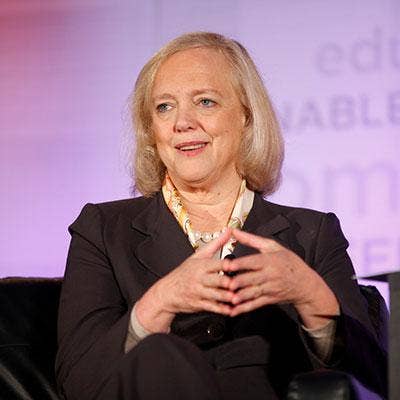
Am I going to make more money with HP as a partner?
I think you will because we'll continue all the progress we've made in the last three years, that will continue, no question about it. If you think we've gotten better about the Unison portal, if you think we've gotten better about bringing you solutions that you can sell, if you think we've gotten better about quote to cash, if you think our back-end infrastructure and our delivery has gotten generally speaking better, all of that will continue and we ought to be able to even be better from a product and solution-oriented standpoint.
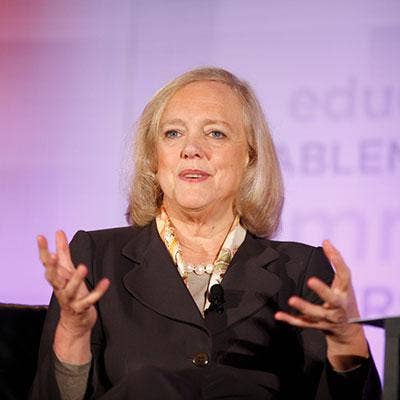
I f I'm a smaller partner, a sub-$100 million company that may not be a Platinum partner, and I've got an issue, who do I go to in the future? Who do I call?
I think first of all, your field rep, if you have one and you know them and you like them. If that's not good enough you can immediately escalate that to your regional person. I would just say Stephen DiFranco [vice president and general manager of Hewlett-Packard's Solution Partners Organization], Scott Dunsire [vice president and general manager, Americas Channels], just pick up the phone or send them an email. Don't hesitate to send me an email. ... I read all my own email. I answer most of my own email. And, I have to say I've gotten expert at hitting the forward button to Stephen DiFranco and Scott Dunsire. By the way, then I have a follow-up mechanism so I know if I have forwarded an issue, I have a feedback mechanism to know what happened.
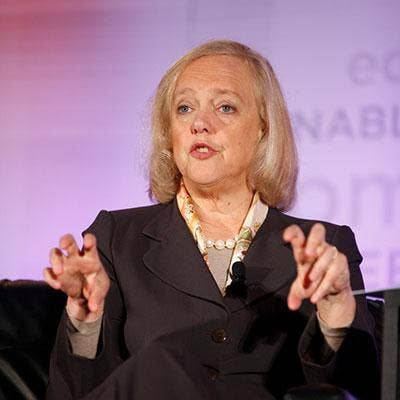
Did you learn anything during your earlier job at Hasbro that you can apply to the channel?
I learned a lot. I learned a lot about inventory businesses, I learned a lot about distribution, I learned a lot about manufacturing in Asia, and I learned a lot about creativity. A lot of people think the toy business and the technology business are very different, and they are. But you know what's the same is that creativity. Engineers, solution providers, the best are creative. How do you solve your customer's problem distinctly? And the same is true in the toy business. The most creative minds create the toys that are the most interesting to kids. So there is a spark of creativity, ingenuity, that is common across all businesses.
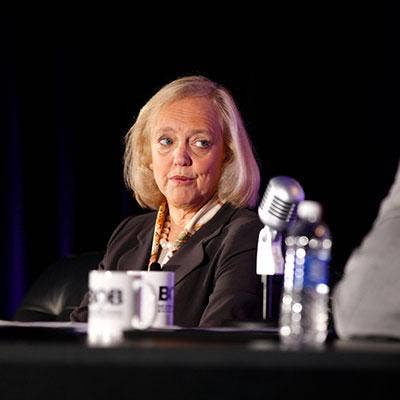
Are hardware-centric HP partners moving into software the way you think they should for the health of their own businesses?
I think everything has to start with business outcomes, and our software is a great way to add value to business outcomes, whether it's our IT Operations Management (ITOM) software, our application development management software, whether it's Vertica, which really is quite a remarkable structured analytic tool. One of our biggest customers for Vertica is Zynga, as well as Facebook. And think about what these companies are doing. They're taking huge amounts of data, and the way they make money is actually understanding the customer behavior through big data and offering advertising that is uniquely suited to them. So I think this is a great way to start a business outcome discussion with your customers. And then, by the way, everyone knows software margins are longer than hardware margins, right? So every attach of ITOM to a data center sale or a server sale is actually margin accretive … but it's actually sewed right into that seam of driving business outcomes.
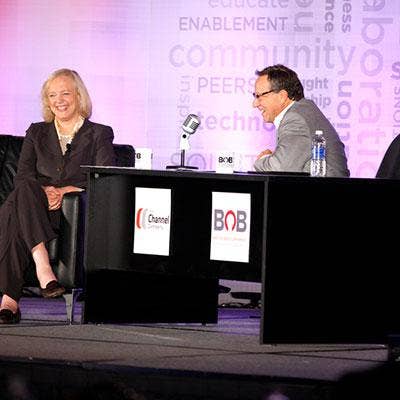
A year and a half from now after the split, who will have the tougher job, you or Dion Weisler?
It's interesting, these will be two Fortune 50 companies, by coincidence they each will be $57 billion companies. They will each make about $5 billion of operating profit. They will be Nos. 48 and 49 on Fortune 500 list, which is actually remarkable. Listen, both incredibly fun opportunities. This is a great time to be in technology. There's huge opportunity. Sometimes people think a lot of the change and innovation is on the Hewlett-Packard Enterprise side, and I agree with that, but I will say what I know about our road map in printing, and what I know about our road map in the personal device business and 3-D printing and new immersive experiences, it's pretty exciting. I think they're both the same fun challenge. … So, I don't know, it's hard to say.
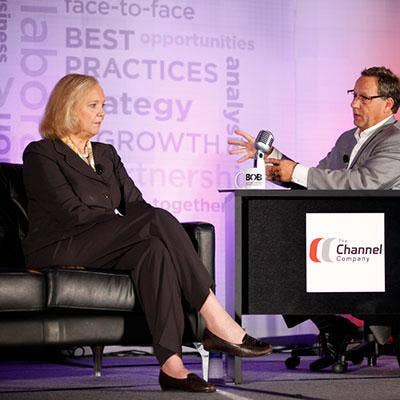
Was it a toss-up for you? Why did you decide to become CEO of HP Enterprise instead of HP Inc.?
I think in large part you look at the management team you have and say who is best-suited for each job and then where do I think I'm best suited. And Dion is an excellent executive, he's a fabulous operator … he's a product guy, and he's done an excellent job running our Printing and Personal Systems business. He ran it in Asia and now obviously is here in the United States. And he also has lived all over the world: He's lived in Europe, he's lived in Asia, he's lived in China. He now lives in the United States and he's Australian by birth. I thought he was perfectly suited to that business, and then, listen, I have a passion for the enterprise, I have passion for changes that are going on in the infrastructure business so it seemed like a pretty good marriage.
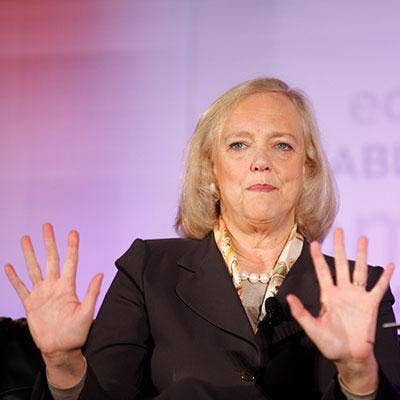
How will you provide information to partners about the split so they can get in front of customer questions and communicate the same message as HP reps in a timely fashion?
[There will be a] constant flow of communication: what are the milestones we are hitting, what's new, what's happening. So we want to connect each of you with a series of materials that your sales reps can use on the phone when asked a question. Also, one of things I learned in politics is symbolic value is incredibly important. In other words, what do you show people that will give them confidence in this separation? So what are the new product introductions, what are the new bundles, what are the new solutions that … your sales reps can get their hands on … so we've got a lineup of announcements designed to show, wow, this is going to be really great for customers. We are all over this and incredibly well organized, but if you're not getting what you need send me an email ... if we missed you for some reason we will make it right.
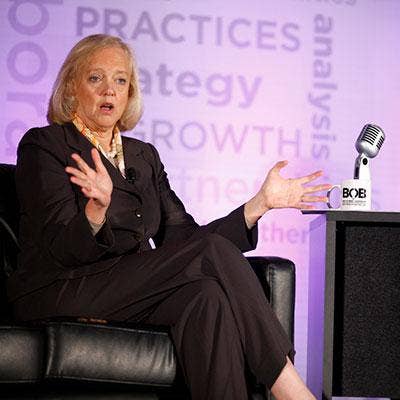
What's HP's long-term plan for playing in the software-defined enterprise space?
The first thing that we all collectively have to do is we have to help our customers run traditional IT better and more effectively. Eighty percent of the spend is still in the traditional infrastructure, so we can't get all enamored by the new and take our eye off the ball of where the real money is today.
The second thing is how do we position ourselves to win as customers begin to move to this new style of IT. Specifically, in the software-defined storage area and the software-defined networking area, we have very good offerings that will get better. We just launched our next generation of software-defined networking a couple weeks ago with an app store that has applications that people can utilize as they move to the software-defined networking opportunity. The same will be true for software-defined storage.
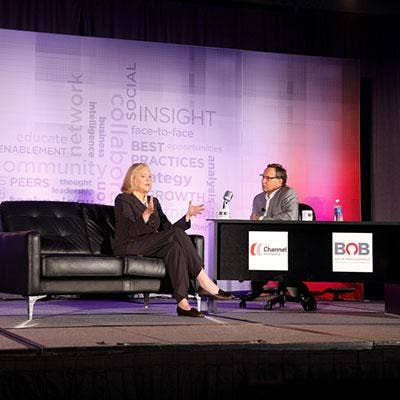
Talk about HP's investment in OpenStack.
Our Helion offering is designed to be a hybrid environment built on OpenStack. People ask me all the time, 'Why did you choose to build on OpenStack as opposed to building a proprietary offering?' Our job is … to skate to where the puck is going to be, not where it is today.
Fifty [percent] to 60 percent of the cloud offerings, in my view, are going to OpenStack within four to five years. I think it will be even bigger than Linux was in terms of percentage of market share. So for cost reasons, for agility reasons, we decided to make the bet there, and it is incumbent on HP to make sure that we are leading this OpenStack community, hardening OpenStack and making it business-ready. … We are the single largest contributor to OpenStack today.
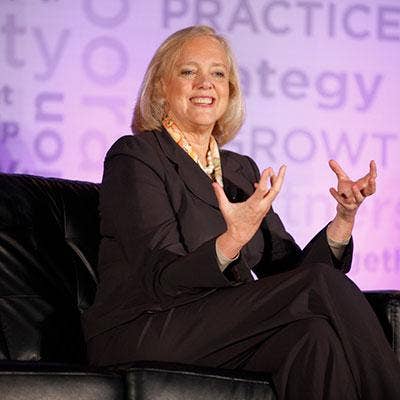
What kind of cellphone do you have?
I actually have an Apple -- I have an iPhone. And, interestingly, I have two. And you might say, 'Why do you have two?' I run my personal email and my personal business on one, and I run my HP business on another. And you might say, 'Why do you do that?' And I would say, 'I ran for governor of California.'
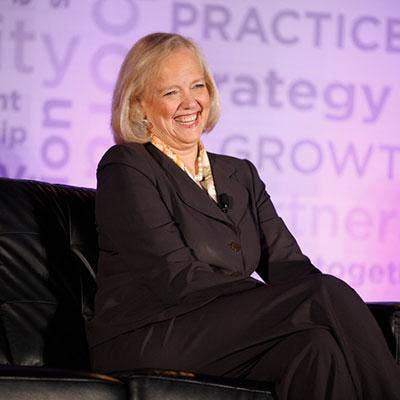
Any chance you might get back into politics?
I doubt that I will ever run for elective office again, and if I do, I will certainly not run as a Republican in a Democratic state. I sort of failed the IQ test on that.
So, we'll see what happens. I had a great opportunity. It was a fabulous learning experience. I will tell you I am a better CEO because of it. But I think this will probably the last thing I do. In between running for governor and [HP], I helped establish Summit Public Schools, which is a charter school organization in Silicon Valley. I was sitting on the board of the Nature Conservancy. So I would probably go back and do something … that will help and make a difference. I don't think I'll do politics again.
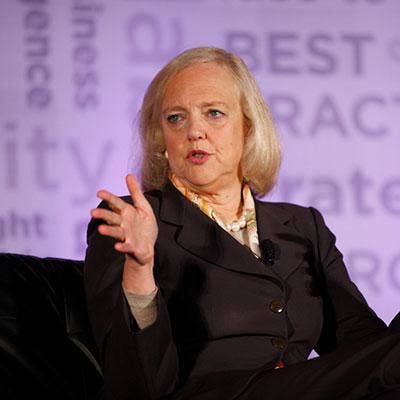
What keeps you up at night about the split? What are the threats?
I don't think there are threats, per se, but this has to be managed well. The separation is complicated. Just the tax and legal separation. Hewlett-Packard has 761 legal entities. Think about that for a second. We only operate in 166 countries, so what does that tell you? That has to be done very thoughtfully and very well.
The next thing is we obviously have to have three years of audited financials, which we don't, for these two companies.
And then we have got to accelerate our progress with [partners]. As much progress as we have made in the last three years, we have to make as much progress in the next year to 18 months, so that we continue to earn your confidence, earn your business, and earn your customers' confidence.
It's a military operation and it has to be beautifully planned. In the spirit of measure twice, cut once -- that's the way you really have to think about this.
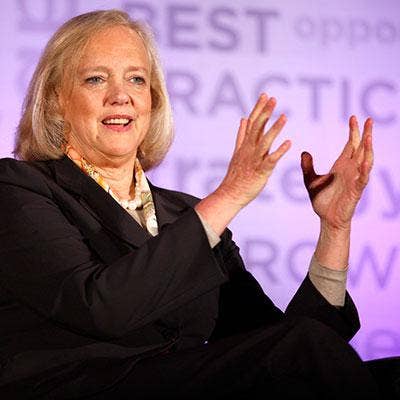
How will the split impact HP Labs?
HP Labs will stay with Hewlett-Packard Enterprise. Memristor, Photonics, The Machine, all the downstream work, StoreOnce came out of HP Labs, Moonshot came out of HP Labs, so the bulk of HP Labs is actually on the Hewlett-Packard Enterprise side. But there is work, particularly in ink -- think about the compounds and the material science, that and some of the display technology, that will actually go to HP Inc. The brand will stay with Hewlett-Packard Enterprise and most of the people will stay with Hewlett-Packard Enterprise, but some of the things that are uniquely around the printing business will go to HP Inc.

On the enterprise side, which one of those technologies are you thinking will be the most disruptive and the most exciting one?
We will run out of power and we will run out of space if we don't fundamentally change the way we do compute, and that is the genesis for The Machine, which uses photonics to move data back and forth. As opposed to copper, it uses light. Then, obviously the Memristor is in-memory compute so you're not spending as much time moving the data back and forth. It's energy-efficient … this is I think the most disruptive thing we're working on. It's not a tomorrow thing but even if [it doesn't work out the way we envision] the Memristor photonic technology will be embedded into our core server business and our core networking and storage business. If we can deliver The Machine, probably a 2019, 2020-something-ish time frame, then this is fundamentally revolutionary. ... We're the only people left doing this [research]. IBM isn't really doing it. Dell really never did it. Lenovo isn't going to do it. This is a core competency of HP that we have invested in and we will continue to invest in because it is an area I think we do better than everyone else.
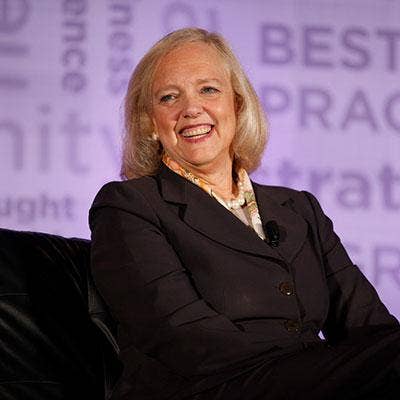
I s there anything you'd like to get from the channel? What could they do that you'd like to see them do with HP right now?
First of all, I want to thank you. Thank you for the business that you do with us. Thank you for being such great supporters of ours. .. .As we go forward, we need you to be our ambassadors. You are the face of HP to your customers. ... As you are hearing things from your customers, if there are things you think we should be doing better, feed it back to me. If you can be evangelists for us, particularly around this separation, that would be very helpful. ... Nothing is more important across Hewlett-Packard than [the channel] and it needs to be a two-way dialogue. We need to help you understand what we're thinking about the market, what we're hearing and then we need to have that coming back to us. ... We really listen and try to take action as fast as possible and together we are stronger. ... I think we're just going to get better and stronger and more important in terms of you growing your business and making money. ... That is the winning formula and we deeply understand that and we want to be part of how you achieve success in business.